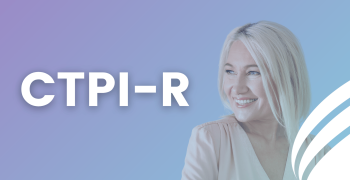
The season of annual reviews is back. This process, generally dreaded by employees, has forged such a reputation that it now hinders its effectiveness. For a good reason, wary employees denounce reviews that are overly focused on performance, often conducted condescendingly, with superiors judging based on imposed productivity goals.
Today, employees are calling for a change in interpersonal relations, especially with superiors, advocating for exchanges based on trust and empowerment. They wish more than ever to evolve in an environment that cares for individual needs.
This transformation in the working world significantly impacts the annual review, which needs to be modernised to make it a meaningful human encounter and an essential springboard towards success.
To undergo this transformation, why not turn to targeted psychometric assessments? They personalise the approach, highlight individual motivations, and offer benevolent recommendations to improve work life.
Let's explore three reasons to use psychometric assessments to conduct your annual reviews differently.
1. To Define Personalised Goals and Boost Motivation:
The words "objectives," "output," and "performance" are no longer in vogue, at least among employees. Once the cornerstones of the annual review, they now need to be exchanged for more qualitative terms to engage employees differently towards the company's common goals.
To align with modern trends, interest assessments are excellent tools, providing necessary coherence between goals and employee desires, while generating meaning.
Specifically, in annual reviews, the results of interest assessments open discussions on the past year's tasks, addressing accomplishments, pleasures, and possible frustrations. These assessments then allow for the mutual redefinition of stimulating tasks for the next year, aligned with the employee's fulfilment markers. For the company, this means happy and productive employees who enjoy completing their tasks.
2. To Develop Future Skills:
The ongoing changes are revolutionising professions and affecting employees' skills. Technical skills are becoming less relevant in annual reviews, and those who haven’t adapted will soon face challenges. Some may still need convincing, but the figures speak for themselves: according to the OECD, a technical skill now has a lifespan of 18 to 24 months, compared to 20 to 30 years in the 1970s. Continuing to measure them is becoming less valuable as they no longer guarantee employee performance. Using a constructive approach to skills assessment is better for evaluating whether the employee can update their technical knowledge and adapt to new working methods.
These skills, such as learning agility and adaptability, are expected to be vital tomorrow and will ensure the success of both the individual and the company. They are part of the soft skills, and the annual review is an opportunity to measure them and implement training plans to refine them since they can be developed through practice and experience.
3. To Target Discomforts and Seek Solutions Together:
It has become a topical issue; employees of all generations - even if Gen Z voices it a bit louder - hold dear human values of listening, seeking meaning, and fulfilment. For them, even if it seems paradoxical at first, this consideration of the human aspect guarantees work engagement, as they are given the freedom to be themselves and have their needs met. Companies that understand these claims and wish to listen to their employees will find, through the annual review, a way to discuss each person's well-being and find personalised solutions.
Assessments help analyse elements that can generate discomfort or frustrations, such as workload, boredom in functions, the need for growth in one’s field, or recognition. Moreover, these assessments help identify early signs of disengagement and suggest corrective measures to establish a balance for everyone.
Integrating psychometric assessments into the annual review is a valuable opportunity for companies looking to maximise productivity and employee retention differently, while focusing on job satisfaction. These tools allow for a better understanding of employee aspirations and motivations, thus fostering more effective dialogue and coherent professional goals. They help create a more fulfilling work environment where everyone's talents are valued, skills are developed, and organisational objectives are achieved more efficiently.





